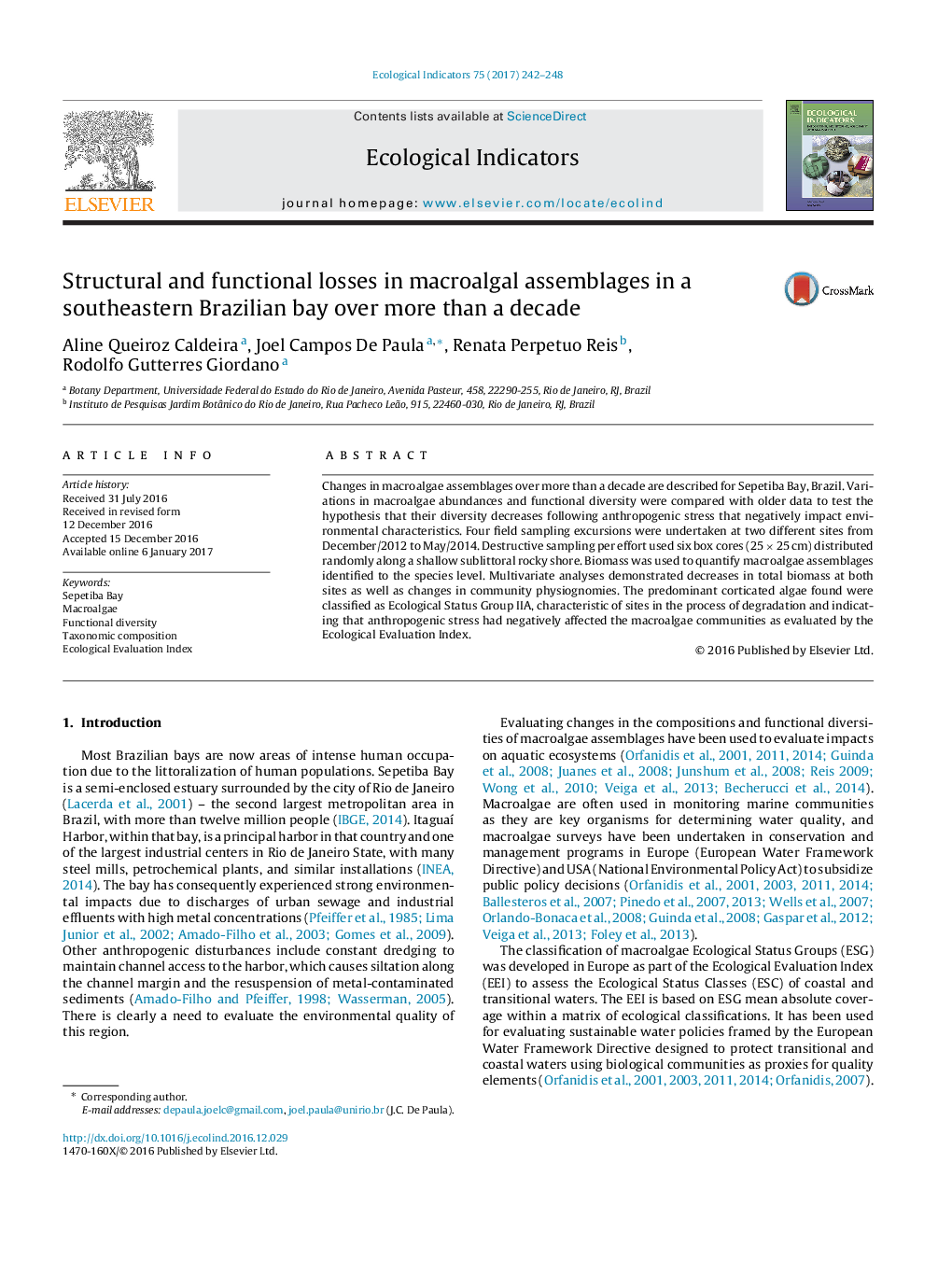| Article ID | Journal | Published Year | Pages | File Type |
|---|---|---|---|---|
| 5741815 | Ecological Indicators | 2017 | 7 Pages |
Changes in macroalgae assemblages over more than a decade are described for Sepetiba Bay, Brazil. Variations in macroalgae abundances and functional diversity were compared with older data to test the hypothesis that their diversity decreases following anthropogenic stress that negatively impact environmental characteristics. Four field sampling excursions were undertaken at two different sites from December/2012 to May/2014. Destructive sampling per effort used six box cores (25Â ÃÂ 25Â cm) distributed randomly along a shallow sublittoral rocky shore. Biomass was used to quantify macroalgae assemblages identified to the species level. Multivariate analyses demonstrated decreases in total biomass at both sites as well as changes in community physiognomies. The predominant corticated algae found were classified as Ecological Status Group IIA, characteristic of sites in the process of degradation and indicating that anthropogenic stress had negatively affected the macroalgae communities as evaluated by the Ecological Evaluation Index.
